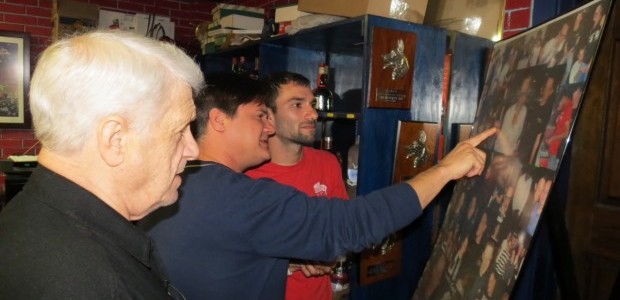
Community more than a word for funeral firm
December 4, 2012
Healing can begin: Guilty verdict delivered in Drama Club murder case
December 4, 2012The National Oceanic and Atmospheric Administration announced last Wednesday that it had withdrawn a proposed rule that would have required Turtle Excluder Devices be added to skimmer trawls, pusher-head trawls and wing-net trawls in Louisiana waters.
TEDs are devices that allow turtles to escape from otter trawl nets operating offshore. The device could be modified to work effectively for the inshore trawl fisheries.
According to NOAA, skimmer trawls fish in shallow areas where they tend to encounter small, young turtles, while otter trawls fish in both shallow and deeper waters so on average they tend to encounter larger turtles.
NOAA fishery researchers found that turtles captured in skimmer trawls were so small they were able to escape through the TED door. Instead, smaller turtles passed through the TED bars and got caught inside the net, causing them to drown rather than allowing them to escape as intended.
“We’re not abandoning this issue, there’s just more work that needs to be done to get it right,” NOAA Fisheries Southeast Regional Administrator Roy Crabtree said. “This is the first time we’ve required observers on skimmer trawls, and the information we now have suggests the conservation benefit does not justify the burden this rule would place on the industry. We need more research looking at different options.”
“While I support the ultimate objective of protecting and promoting sustainable sea turtle populations, we did not have sufficient data to support the implementation of new regulations that would impose significant costs on many Louisiana small businesses,” Sen. Mary Landrieu said in an email response to the NOAA announcement. “Coastal Louisiana is a unique, deltaic environment with muddy water bottoms and shallow estuaries that place different demands on gear than the crystal waters and sandy bottoms of other gulf fisheries. I am encouraged by [this] decision and know that many hard-working shrimping businesses across the state will also welcome this news.”
Southern Shrimp Alliance Executive director John Williams said he was glad to see “common sense” applied to the TED issue.
“We worked with NOAA and the National Marine and Fisheries Service on this,” Williams said. “This is a very serious issue for the industry and would have been a substantial financial hit for shrimpers. Data to warrant putting TEDs in this industry just isn’t there.”
Depending on specific TED designs, a typical shrimper could have spent up to $600 for each TED, Williams said.
“If you have two per boat, and are pulling a couple of nets on skimmer trawls and have a couple of spares, so you could have a $2,400 expense right there,” he said. “Then with the projected loss of shrimp the financial loss could be very substantial.”
The proposed rule would have impacted an estimated 2,600 fishermen.
A draft environmental impact statement released by the National Marine and Fisheries Service early in 2012 was unable to provide a definitive explanation for the elevated sea turtle stranding recorded in the northern Gulf of Mexico during 2010 and 2011.
In hopes of providing some answers, the Gulf States Marine Fisheries Commission sponsored a $300,000 initiative to conduct the first-ever comprehensive stock assessment of Kemp’s Ridley sea turtles.
Landrieu applauded NOAA for recognizing the conservation benefit did not justify a burden the TED rule would place on the shrimp industry.
The senator said she would continue to work with industry stakeholders and federal regulators to preserve and promote a viable, sustainable gulf fishery.
TEDs have been required in otter trawls for more than 20 years. Fishermen using skimmer trawls, pusher-head trawls, and wing-net trawls are authorized to use tow time limits instead to help prevent incidental catch of turtles.
As part of adopting science-based management measures, NOAA fishery managers said they would continue to research turtle captures in skimmer trawls and increase outreach to the shrimp industry, with a focus on education and compliance with tow times.
A loggerhead turtle is pictured escaping a net equipped with a TED. The National Oceanic and Atmospheric Administration withdrew a proposed rule last week that would have required turtle excluder devices be added to various trawls in Louisiana waters.










